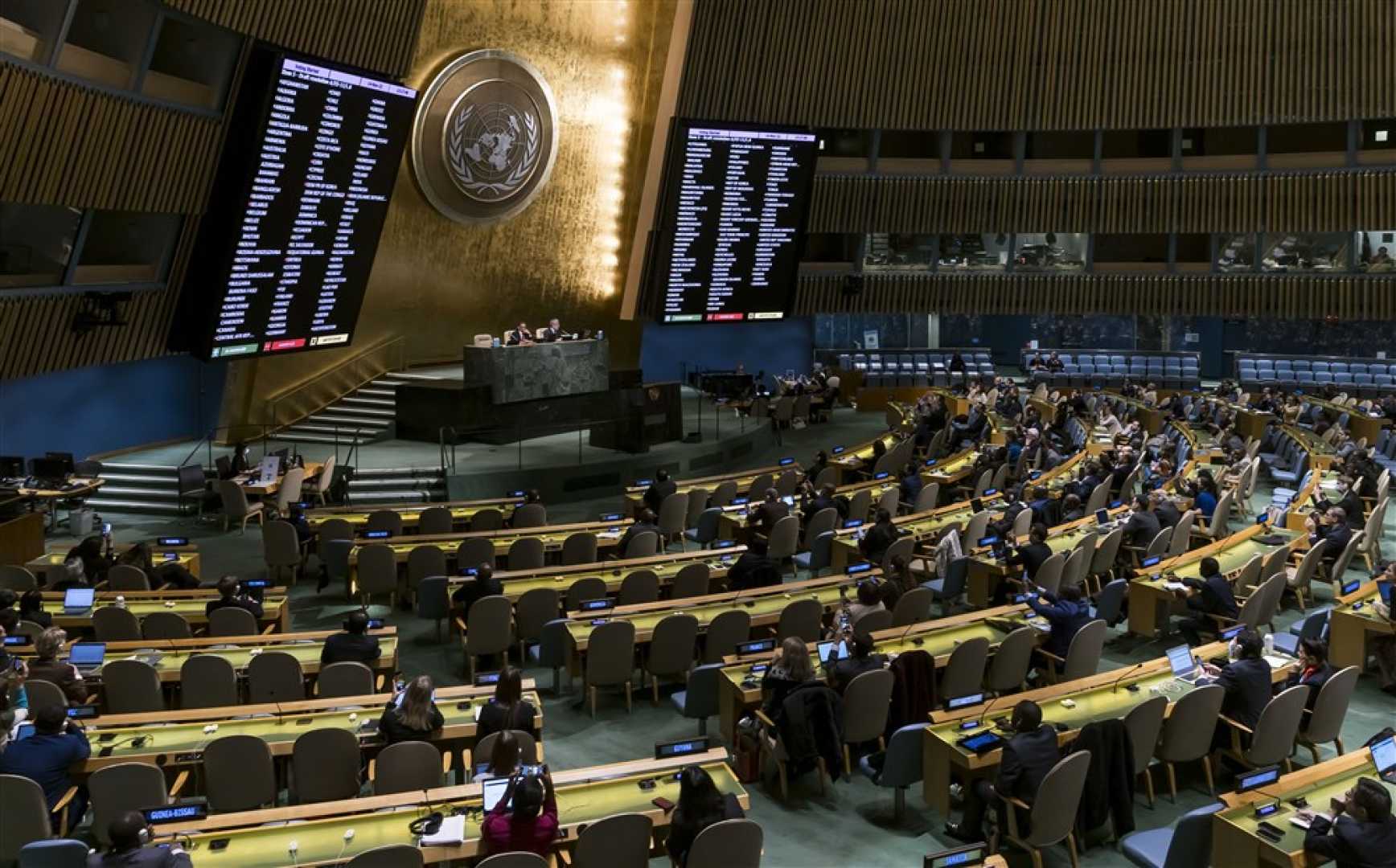World
Ukraine Marks Invasion Anniversary Amid Shifting Global Alliances

NEW YORK, Feb. 17, 2025 – As the fourth anniversary of Russia’s invasion looms on Feb. 24, Ukraine remains at the forefront of international concern. The United Nations Security Council convened today in New York, while several European Union member states are gathering in Paris to discuss the changing geopolitical landscape.
Ukrainian President Volodymyr Zelensky has urged European allies to reject any agreements made with American representatives that may overlook Ukraine’s interests. He questioned whether this behavior signifies a new world order, stating, “What is clear is that the international order established by the United States in 1945 has significantly lost its relevance.”
According to military analyst General Vincent Desportes, the efficacy of the Security Council is effectively paralyzed. Desportes stated, “The United States, Russia, and China hold veto power, leading to a total gridlock in resolutions. This structure raises critical questions about the Council’s current capabilities.”
Desportes remarked on the historical context, comparing the UN to the defunct League of Nations which failed to prevent World War II. He expressed concern that while the UN’s components may persist, its operational effectiveness and the role of the Security Council will likely be redefined: “It has been cumbersome to reform the UN; it will eventually fade, making way for a new order borne of the people’s will.”
He emphasized that without a strong and unified Europe, emerging governing bodies may develop independently of European influence, stating, “The urgency for Europe to present a united front with a coherent worldview is paramount.” This sentiment echoed during discussions among European leaders in Paris today, reflecting a need for strategic direction.
Desportes provided a historical perspective on the flaws within the global governance system, asserting that the collaboration between Russia and the U.S. during the post-World War II era considered both nations held significant global power. However, he argues that the geopolitical landscape has shifted dramatically: “Today, while the West has not lost its power, it no longer holds a monopoly. The rest of the world outnumbers it, representing 83% of the global population.”
He continued by highlighting the economic disparities in current global representation, stating, “The West accounts for only one-third of global GDP, illustrating a significant global power rebalancing.” He pointed out that policies shaped during the Trump administration further complicate existing dynamics, as Trump’s foreign stance emphasized raw power over collaborative governance.
Desportes argues that Europe must adapt to this evolving situation. He warned against relying solely on the EU’s expansion for strength, stating that fragmentation has diluted Europe’s influence. Instead, he called for a more cohesive subsystem, similar to a “directorate” of key European nations to steer collective policy and negotiations effectively.
As discussions unfold, Desportes believes that a powerful coalition of economically and demographically significant nations will not only clarify Europe’s role but also ensure it maintains a strong presence in future negotiations. He stated, “For Europe to assert itself, it must operate with one voice, one objective, and a unified vision.”
Desportes concluded by acknowledging the challenging circumstances ahead, attributing them partially to Trump’s administration. “We may wish to thank Trump for compelling Europe to confront the challenge of finding a new strategic autonomy, a goal long sought by French leadership since the 1960s,” he said. He remains optimistic that this crucial turning point will lead to a more mature European entity capable of navigating a tumultuous geopolitical landscape.
This article is based on insights from the program ‘Pour bien comprendre,’ where journalists analyze current events with expert commentary to uncover underlying issues. RCF is a professional associative radio aiming to maintain program quality and independence through listener support.












